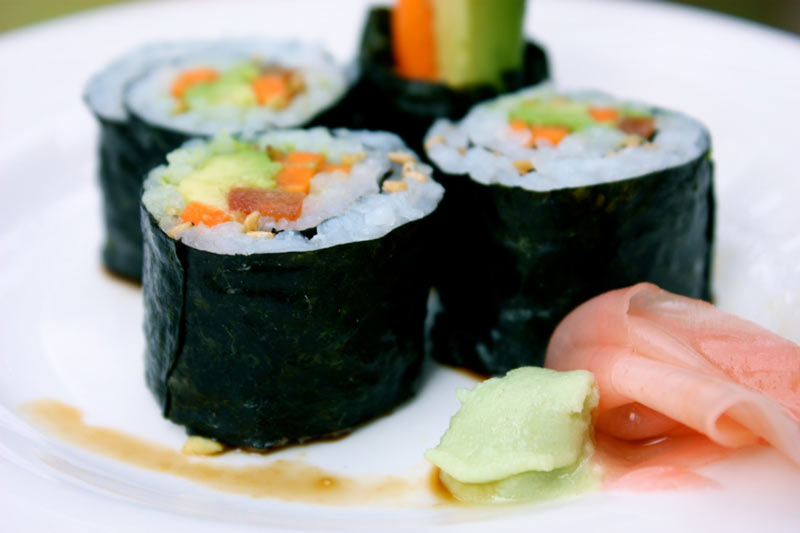Sushi, iodine and thyroid problems
SMH, Mark Russell, July 31, 2011
Consuming more than a handful of the seaweed used as a wrap for sushi rolls or in soups and stews each week could affect the thyroid gland. Dietitians Association of Australia’s Lisa Renn said sushi was a healthy meal but only if restricted to two or three rolls twice a week because of the iodine levels in the seaweed wrap.
According to the Food Standards Australia New Zealand code, one sushi roll contains 92 micrograms (one millionth of a gram) of iodine. The recommended daily intake of iodine for adults is 150 micrograms (20,000th of a teaspoon).
The thyroid, a small butterfly-shaped gland in the lower part of the neck, needs iodine to produce essential hormones which regulate the body’s metabolism. But excessive amounts of iodine can lead to hyperthyroidism (overactive thyroid causing symptoms including palpitations, fatigue and weight loss) while low levels can cause hypothyroidism (underactive thyroid causing fatigue, weight gain and confusion).
Thyroid Australia estimates about 850,000 Australians suffer thyroid dysfunction, with more than 40,000 new cases developing each year. The Federal Department of Health and Ageing, alarmed by the increasing number of people with thyroid conditions linked to seaweed, issued a warning to doctors, endocrinologists and state and territory chief health officers last year.
If you have questions about the symptoms associated with thyroid contact your local doctor, who will arrange for you to see a thyroid surgeon.

